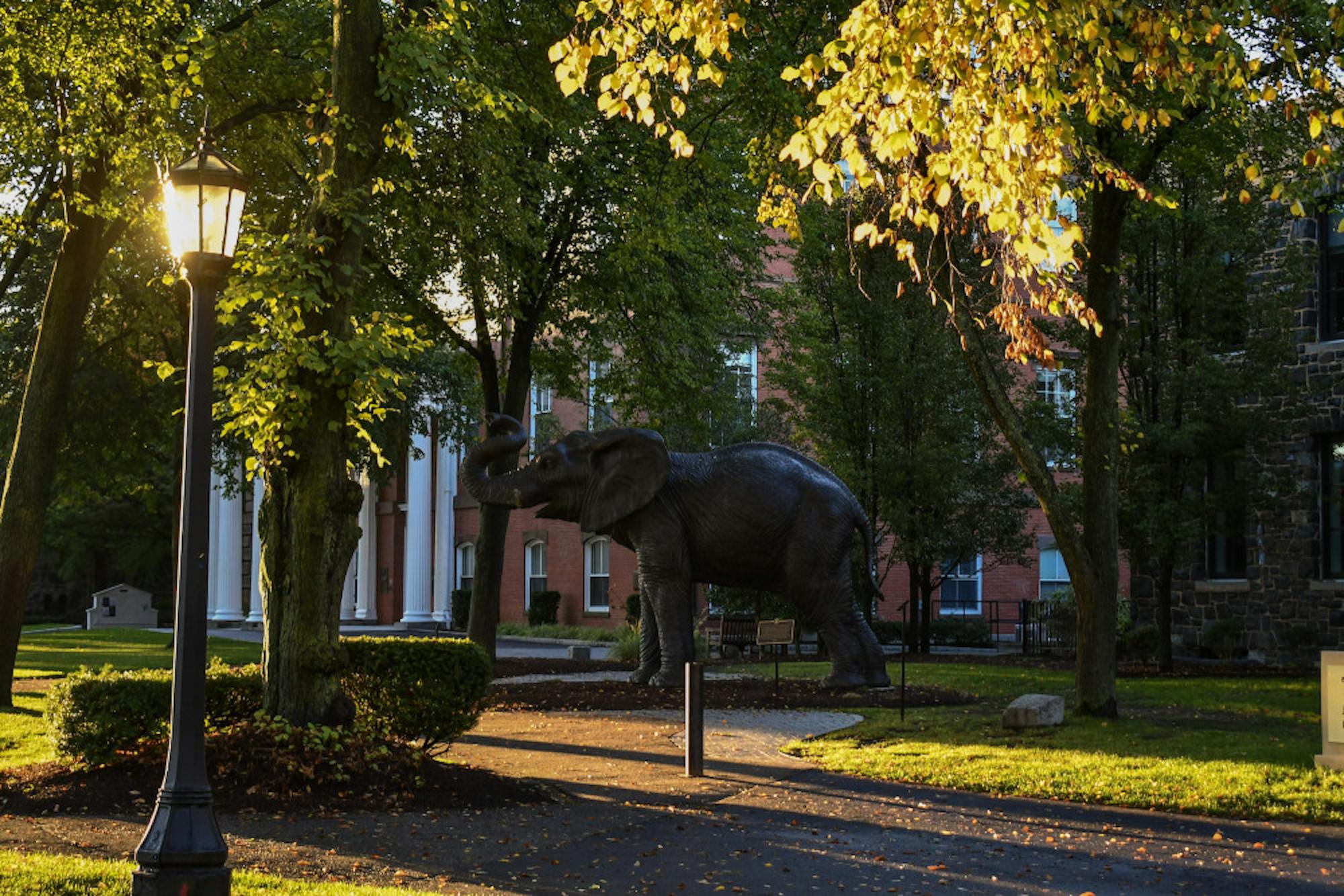New Tufts Community Union (TCU) Senate members were recently placed into various Senate committees after ranking their choices by preference following their retreat — an annual event that was held virtually this year.
There are five committees, each one specializing in different initiatives to enhance student life: Administration & Policy, Community & Diversity, Education, Outreach and Services.
Each committee chair gave a presentation on their individual projects and responsibilities during the retreat, and all new and existing senators received interest forms that asked them to rank committees by preference, according to TCU Vice President Grant Gebetsberger, a senior.
During a typical school year, each committee is involved in an assortment of initiatives. Gebetsberger explained that the Services Committee handles questions of infrastructure on campus.
"So things that are really tangible and physical, like dealing with printers, dealing with laundry … They also run certain yearly things like the Turkey Shuttle,” Gebetsberger said.
Gebetsberger also anticipates that the Turkey Shuttle, which typically transports students from campus to Logan International Airport and South Station during the Thanksgiving holiday, will not be running this year.
The Outreach Committee is another of the service-based committees.
“We also have Outreach, which tries to make Senate more accessible and tries to connect senators with the student body to collect feedback and publicize our office hours and to really work to make sure that we have solid channels to communicate with students,” Gebetsberger said.
The Community & Diversity Committee is more community-based and is composed of the eight TCU community senators.
"The membership of that committee is all of our community senators ... so that membership is already kind of predetermined,” Gebetsberger said.
Gebetsberger emphasized the importance of the Community & Diversity Committee in supporting the six Division of Student Diversity and Inclusion (DSDI) centers.
“It’s really special because I think it’s one of the only spaces on campus where members who are involved with all of our [DSDI] centers get together on a regular basis," Gebetsberger said. "So those folks tend to work a little more closely with the [DSDI] centers specifically, and then we come back and we think about ways to structurally support those centers.”
The Administration & Policy Committee deals with the policy and regulation side of the university.
“Looking at the university budget, looking at tuition increases, looking at any work on Senate that would go towards climate change divestment from our endowment," Gebetsberger said.
One of the critical responsibilities of the Administration & Policy Committee is the organization of town halls, which connect students with administrators so they can ask direct questions.
The Education Committee focuses on issues related to academics, such as the curriculum and the academic calendar.
"The chair, Iyra [Chandra], was really involved in the project toreform the world civilization requirement," Gebetsberger said. "[The Education Committee] also have been really helpful in pushing for exceptional pass/fail.”
Given COVID-19 restrictions, all committees are currently facing the challenge of adjusting to an online format for Senate meetings. Chair of the Senate Education Committee Iyra Chandra expressed her concerns with the transition to online meetings and the possibility of meeting in person.
“I’m currently trying to figure out if we can do in-person meetings," Chandra, a junior, said. "I think only three people can be in the Senate office now so we can’t do our meetings there."
Chandra explained that she reached out to her committee members to ask for their preferences, and they reached a consensus in favor of a mix of in-person and Zoom meetings.
Despite these obstacles, Gebetsberger emphasized his pride in the way senators continue to seek innovative solutions.
“We’ve all adapted really well and I’m really impressed with all of the committee chairs for finding creative ways to make this work,” he said.
Gebetsberger noted the particular effectiveness of social media in spreading TCU Senate information in a time when media literacy is growing, and he commended the TCU senators who have had a hand in that.
For instance, Senator Hadiya Giwa created a graphic that explained what TCU Senate does and how it works, which was posted on the Senate's social media pages by the Outreach chair.
Giwa, a first-year, explained how social media was useful in sharing her platform during her campaign for Senate.
“It’s definitely different than past years because everything pretty much had to be virtual, " Giwa said. "Most, if not all the candidates really took advantage of social media platforms, especially Instagram, creating separate accounts for their campaign, and using that to post what their platform was all about."
Looking forward, Gebetsberger expressed optimism toward how the pandemic will push TCU Senate to refine itself.
“I think one thing that has arisen from COVID is rethinking our internal structures and what matters," Gebetsberger said. "What do we need to keep, and what is not as important [or what] can we streamline?”






